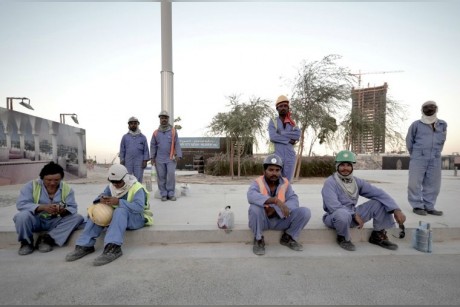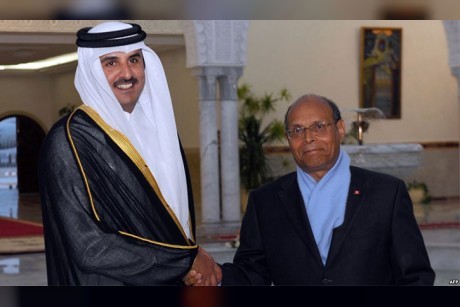Qatar prepares itself for the 2022 World Cup in full swing to put its best foot forward in the world. The stark reality which Doha is trying to hide is not only the corrupt means through which it won the bid to host the game but the ‘modern slavery’ it is executing.
Huge number of migrant workers have died in Qatar over the recent years, while thousands more are enduring appalling humans rights abuses. More than 1,400 migrants have died since work on World Cup stadiums commenced due to poor living conditions. Human rights groups have anticipated that the death toll of the migrant workers could rise to 4,000 by 2022.
These realities had raised serious questions over Qatar’s preparations to host the tournament. Doha has spent almost Dh 3.3 billion on 40 stadiums, while the migrant workers who built them were paid just Dh3.8 an hour.
The Nepali government said that around 110 Nepalese workers die every year in Qatar due to lack of safeguards at the construction sites and poor living conditions.
Germany's WDR issued a documentary, titled “Trapped in Qatar,” unveiling the miserable plight of workers who are forced to live in cramped camps without basic human needs. It also showed how 200 workers shared a single toilet and as many as eight shared the small, dark rooms provided to them.
In May, the journalist Benjamin Best managed to enter Qatar with a hidden camera to show the conditions in which thousands of workers were surviving. The workers told him that they haven’t received their wages for months and were not provided proper shelter or food. They were kept as bonded slaves and weren’t able to leave the country as their passports were confiscated by their employers.
Furthermore, Families of dead workers said they did not receive compensations from Doha for their tragic losses.
It should be mentioned that about 40% of migrant labourers in Qatar are from Nepal. In order to protect their citizens from Qatari exploitation, Nepal and the Philippines took united action last week. Nepalese authorities are also openly discouraging its citizens from going to Qatar. Doha has shown an unapologetic attitude towards the issue.
Qatar pledged in 2017 to introduce significant reforms for migrant workers, including a minimum wage, allowing people to leave the country and health and safety measures. But no agreement has been enforced in this context yet. When asked about wage raise, the country’s sports minister said in an interview this month that he did not know when wages would be increased.
"That’s why we need to work very closely with our respective embassies there to make sure that any issues involving labour rights will be quickly addressed by the Qatar government", reported Chito Gascon, the head of the Philippine Commission on Human Rights.



